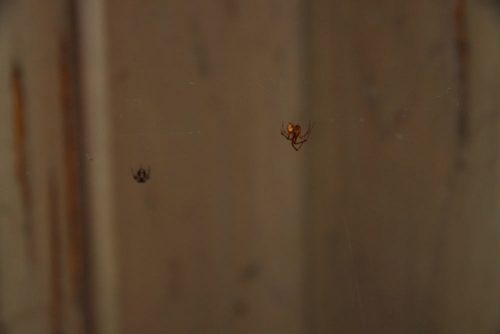Wired, the magazine, has a promotional spot for their Team of Experts. I hate it.
Do your guts float in space? Do aliens exist? Can you punch specific memories out of your head? Get the science lowdown from our team of experts. pic.twitter.com/BzI0RPvzTN
— WIRED Science (@WIREDScience) June 22, 2019
Bill Nye, James Cameron, Ken Jeong, Neil DeGrasse Tyson, former NASA astronaut Scott Kelly and neuroscientist Anil Seth answer the most interesting science questions from Twitter.
Let me count the ways this is bad.
- It’s all men. Did you notice? Let’s foster the impression that cool science nerds are only boys.
- These are all men who are comfortable with pontificating on science — that seems to be the primary criterion for their selection. James Cameron, for instance, is not good at engaging with an audience of learners. Bill Nye’s answer to a stupid question isn’t at all insightful, and is somewhat wrong, because he’s not an evolutionary biologist.>
- The format is stupid: those are not “the most interesting science questions from Twitter”.
In fact, I’d say that if you’re going to Twitter for science questions, you’re already fucked.If we evolved from monkeys, why are there still monkeys?
Just shoot me now. - What’s with the sciencey toys scattered on the desk? They don’t use them. They’re only there because someone thought a scientist’s desk would be covered with toys. Nope. My desk is covered with books and papers and computer cables. So many cables…
- Getting bad questions from Twitter means you’re going to get short, glib answers. It’s blipvert science. They’ve taken a complex process and boiled it down to a game of snappy answers to stupid questions.
- The worst thing to me — that women are ignored would be the worst, except that it’s a blessing to women that they aren’t associated with this crap — is that this is exactly the attitude that wrecks TV, YouTube, and other media as tools for education. It encourages the idea that the purpose of learning about science is to enable you to crush fools with your witty erudition. The people who rise to the top are those best able to punch down, which turns the whole thing into an aggressive hierarchy. That’s not science, although it may reflect the ugly side of the social institution of science.
You know what might make for a good science show? Go to scientists, and ask them what difficult questions are bugging them. Then have them explain the background to the question, what’s been done so far, and speculate about what the answer might be, and how they’d know it if they saw it and how it would affect their perspective on the field. Unfortunately, that’s hard and wouldn’t give you snappy blipverts that make people feel smarter than the rubes. It would require a goddamn conversation.
But this Wired thing? It’s a vision of science as an authoritarian cult as imagined by a libertarian who learned his science on Reddit.











